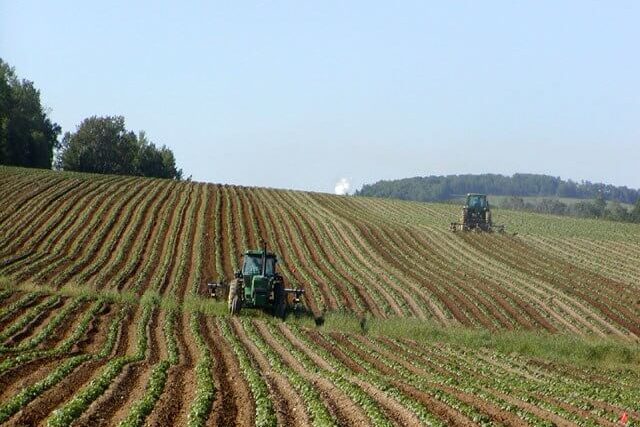
Food and agriculture are responsible for around one-third of global greenhouse gas emissions — second only to fossil fuel use. Yet, new data from Sentient Media reveals that mainstream coverage of the climate crisis continues to largely ignore this critical sector.
According to the analysis, just a quarter of climate-related stories published by 11 major U.S. outlets — including The Guardian, New York Times, CNN, and The Washington Post — mentioned food and agriculture as a cause of global warming. Of the 940 articles reviewed, only 36 (3.8%) referred to animal agriculture or meat production, the single largest source of food-related emissions.
The findings point to a media landscape that routinely obscures one of the leading drivers of the climate crisis. Meat production alone accounts for nearly 60% of emissions from the global food system, yet public understanding of its impact remains limited. A 2023 Washington Post/University of Maryland poll found that 74% of Americans believe reducing meat consumption has little or no effect on climate change.
Sentient Media’s research reviewed recent online climate coverage from 11 national outlets, excluding opinion pieces and articles that mentioned climate change only in passing. Using artificial intelligence followed by human review, researchers catalogued which sectors were most frequently linked to the crisis. While industries such as energy (55.9%), fossil fuels (47.9%), and transportation (34%) were often cited, livestock and meat production were discussed the least.
Sentient Media’s editor-in-chief, Jenny Splitter, who helped oversee the report, said she had long noticed the omission as a reporter covering the intersection of climate and food. “As a reporter covering the intersection of food and climate, I’ve noticed for years how absent agriculture is from the larger conversation,” she said.
“We thought one way to start the conversation with other journalists and newsrooms was to put some numbers to the question,” she said.
Mark Hertsgaard, executive director of Covering Climate Now, a nonprofit that helps newsrooms improve their climate coverage, said journalists often focus on short-term updates rather than exploring deeper systemic causes.
“It’s not necessarily nefarious,” he said. “But as the climate crisis has accelerated, it is increasingly indefensible for news coverage of climate change not to make it clear that this crisis is driven by very specific human activities – primarily burning fossil fuels. And in second place is food, agriculture, forestry.”
Dhanush Dinesh, the founder of the food-systems focused thinktank Clim-Eat, said climate organisations sometimes shy away from the topic due to food’s fraught cultural status, which may have helped to keep it from the media spotlight.
“Nobody wants to put themselves out there and tell people what to eat – it’s just too sensitive,” he said. “Even within the [climate advocacy] space, we see it’s quite polarising.”
Industry pushback has also played a role. When The Lancet published a 2019 report showing that reduced-meat diets could feed the world sustainably, beef industry groups reportedly funded efforts to discredit the findings. In Denver, a cattle industry coalition even maintains a 24/7 “command centre” to monitor and counter negative media coverage.
Journalist Michael Grunwald, who has covered climate issues for Time, Politico, and The Washington Post, said conversations about food’s role in climate change lag “about two decades behind” those about fossil fuels. “
“I didn’t know squat,” he said. “Here’s this important part of the climate equation that I was spectacularly ignorant about. And I realized others probably were, too.”
“When you eat a burger, you’re not just eating a cow,” Grunwald said. “You’re eating macaws and jaguars and the rest of the cast of Rio. You’re eating the Amazon. You’re eating the earth.”
Despite the sector’s massive footprint, just 15% of articles analysed by Sentient Media mentioned land-use change — a major source of emissions linked to deforestation.
Princeton researcher Timothy Searchinger said this oversight is crucial: converting forests into farmland releases as much carbon annually as the entire United States.
“Every tree, after you take out the water, is about 50% carbon. So forests store vast quantities of carbon,” he said. “If we continue to clear forests, we have the capability to dramatically increase climate change.”
“There’s kind of no way to solve the land use problems in the world unless there is moderation of diets – meat consumption, particularly beef – in the developed world,” Searchinger said.
With the global population projected to grow from 8 to 10 billion by 2050, he added, the challenge will be to produce more food with far fewer emissions and less land. According to the World Resources Institute, if people in wealthy countries reduced ruminant meat consumption to about 1.5 burgers per week — roughly half the current U.S. average — it could nearly eliminate the need for further deforestation.
Jessica Fanzo, a Columbia University climate professor, acknowledged that food’s limited coverage reflects not only editorial priorities but also systemic barriers to progress.
“Governments are reluctant to push hard on dietary change, livestock emissions, or fertilizer dependence because they trigger cultural sensitivities and risk political backlash,” she said, by email.
Bill McKibben, climate activist and author, added that the decentralized nature of food production complicates accountability. “Twenty fossil fuel companies drive most global emissions,” he said, “but food is produced by millions of farmers.”
U.S. agriculture policy also reinforces the problem, he added, by subsidising grain and animal feed production — a system designed for cheap calories, not climate resilience. Policy tools like meat taxes or meatless Mondays often meet fierce cultural resistance.
Still, experts argue that journalism can play a pivotal role in shifting awareness.
——————————————————————————
At Natural World Fund, we are passionate about restoring habitats in the UK to halt the decline in our wildlife.

